Today is the 3 year anniversary of YLE! This means exactly 3 years ago, I told my husband: “I’ll only do this for 6 weeks max. By then, someone will surely pick up the reigns and start communicating with the public.” Well, here we are, 623 posts later and reaching more than 300 million eyes.
It’s been a hell of a ride.
I’m most proud of the YLE community! So, to celebrate, here is a snapshot of you.
Who is the YLE audience?
Last month, over 44,000 of you took my “Who Are You?” survey.
Respondents live in 104 countries. Most are in the U.S. (93%), but of those outside the U.S., 48% are in Canada. (Hi, neighbors)! If anything, this is a testament to just how much scientific “translation” is needed across the globe.
After adjusting for population, Vermont, D.C., Oregon, and Washington have the highest readership in the U.S.
Most identify as socially liberal. Many identify as being fiscally conservative, though. I’m proud of that diversity. It’s really difficult to separate public health from politics. And sometimes it can’t be separated: good policies are informed by good science. But I do actively try to get public health science to the people that want it, which I’ve learned is a diverse set of individuals. To me it’s important that science breaks echo chambers, rather than infiltrates them.
Three of four readers are 26-64 years old. This is different from last year, when readers were, on average, younger.
The YLE community is incredibly educated: 99% have completed some college. 60% have a masters or doctoral degree.
Readers work in a wide variety of settings, but most commonly in healthcare.
The “other” category was huge, and I’m still combing through the open-ended responses. Some pretty amazing professions popped up thus far: NASA, mailman, wrestler, Olympic swim coach, and someone who owns a cupcake store.
How have you used YLE?
An overwhelming majority of you say YLE helped you “understand what the heck is going on” and translated scientific details you didn’t know.
Where should we take this in the future?
Epidemiology touches on all aspects of our lives (not just during a pandemic). More than half (58%) of you are interested in hearing about other topics, and another 40% say it depends on the topic.
As far as topics, a lot of you are interested in “anything and everything!” The top five topics of interest are current events in the news, mental health, nutrition/physical activity/obesity, and medical treatments. Challenge accepted.
There are many reasons people don’t financially support the newsletter, including not wanting yet another subscription. This is a subscription-dense world. I get it.
There are a lot of people who don’t know how to support YLE. There are two main ways:
Upgrade your subscription to paid. You can also get a group subscription. (For example, some hospitals have done this for their employees.). Or gift a subscription.
Donate to my Go Fund Me account.
I feel strongly that science should be easily accessible and available, so YLE will always be free. But subscribing pays for my time, allows me build a team, and gives me the freedom to travel to train scientists and the next generation. Public health needs more knowledge translators.
Bottom line
Happy 3 year anniversary! My goal for Year 4 is to sustain interest in public health beyond a pandemic. Will it work? Who knows. But I’m going to try.
Love, YLE
Big thanks to Elise, a PhD in biomolecular science and a student in UC Santa Cruz’s science communication program, who helped pull this data and drafted the report.
“Your Local Epidemiologist (YLE)” is written by Dr. Katelyn Jetelina, MPH PhD—an epidemiologist, data scientist, wife, and mom of two little girls. During the day she works at a nonpartisan health policy think tank and is a senior scientific consultant to a number of organizations, including the CDC. At night she writes this newsletter. Her main goal is to “translate” the ever-evolving public health science so that people will be well equipped to make evidence-based decisions. This newsletter is free thanks to the generous support of fellow YLE community members. To support this effort, subscribe below:






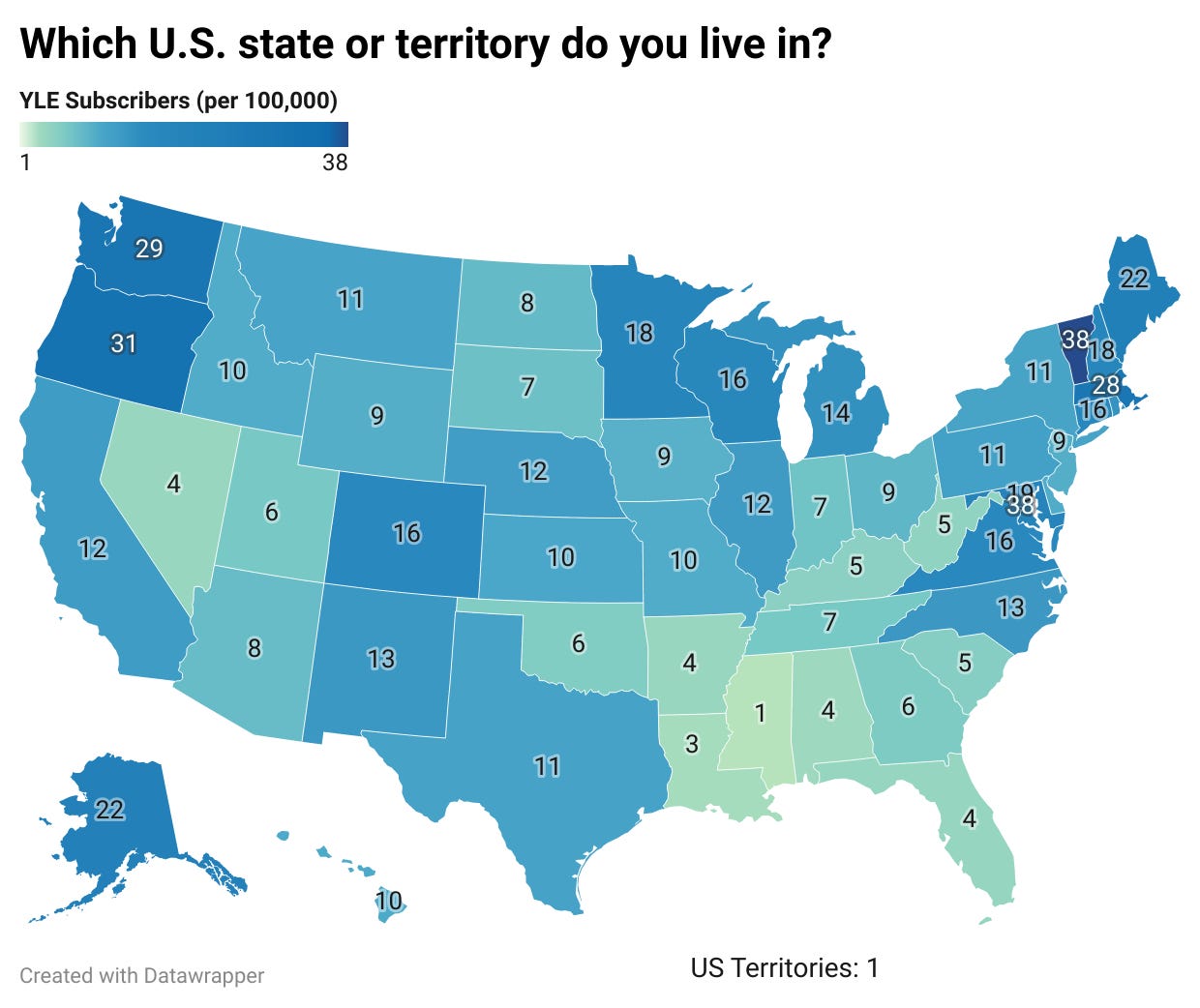

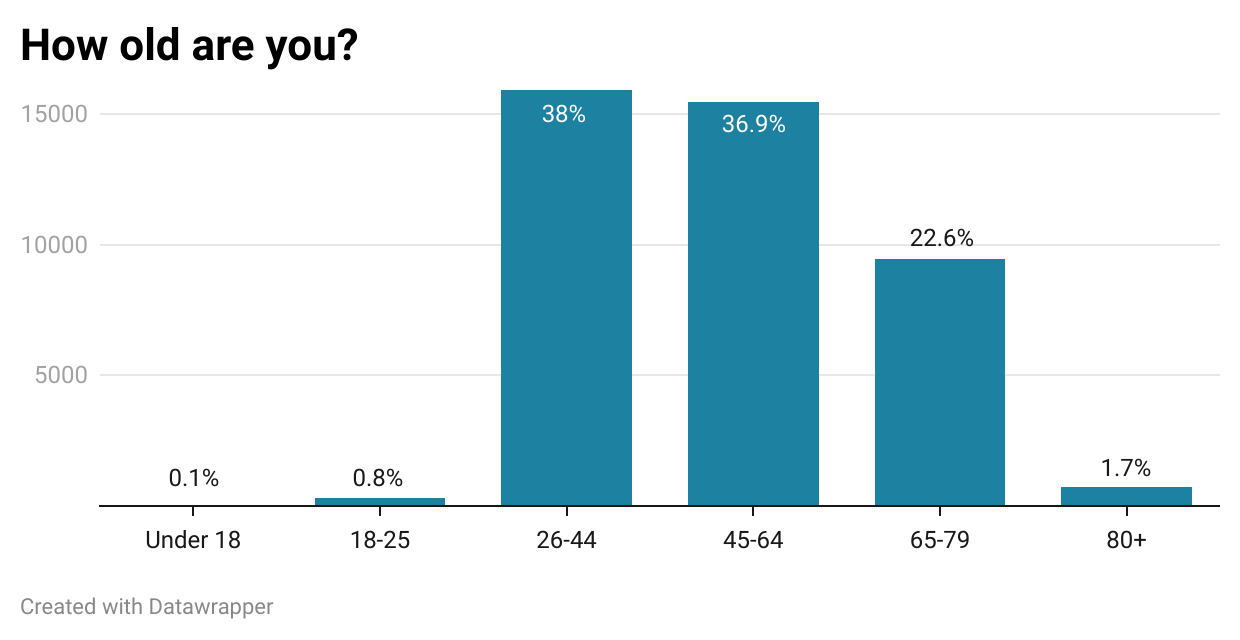

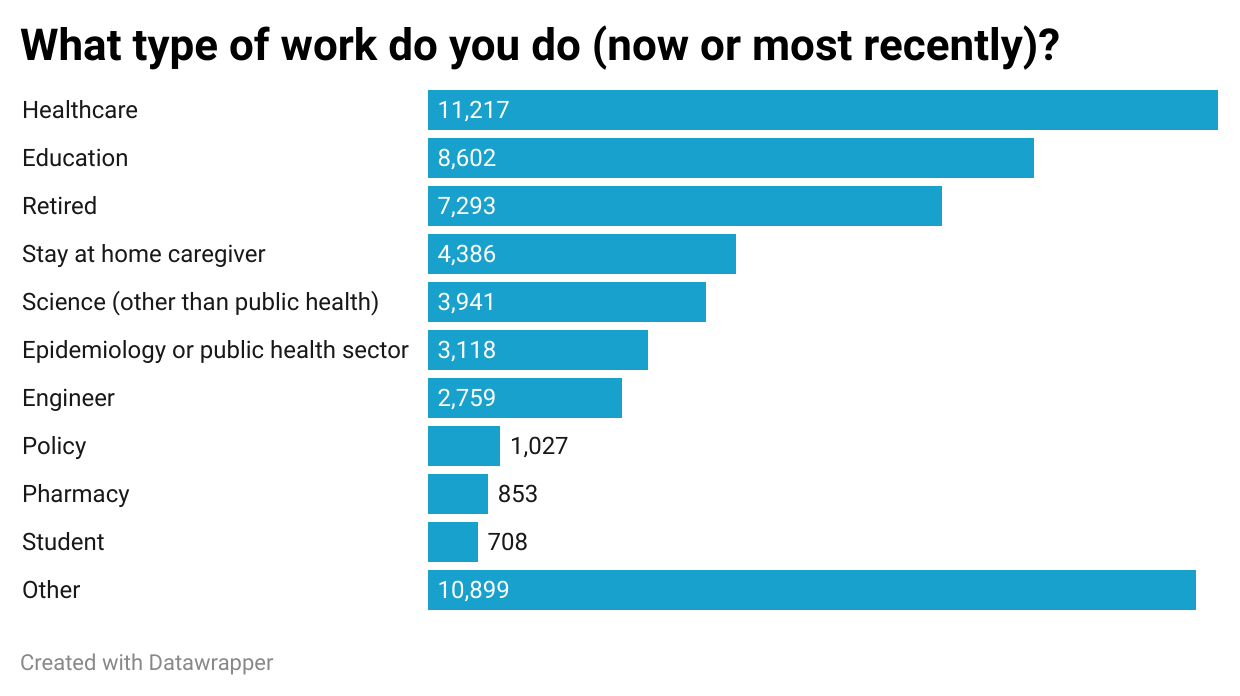
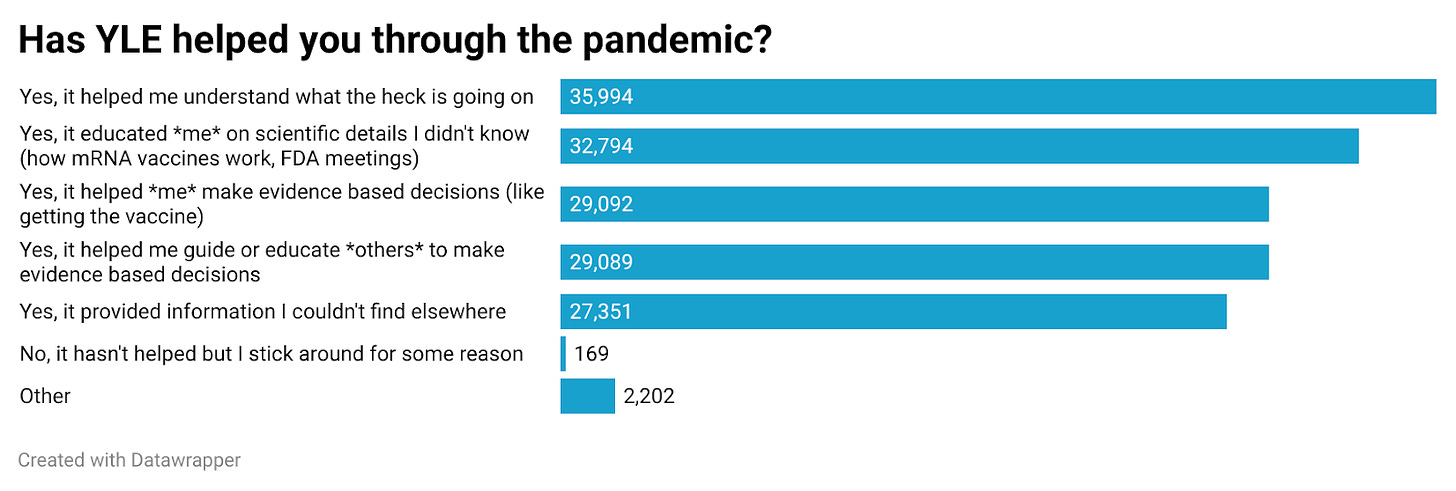
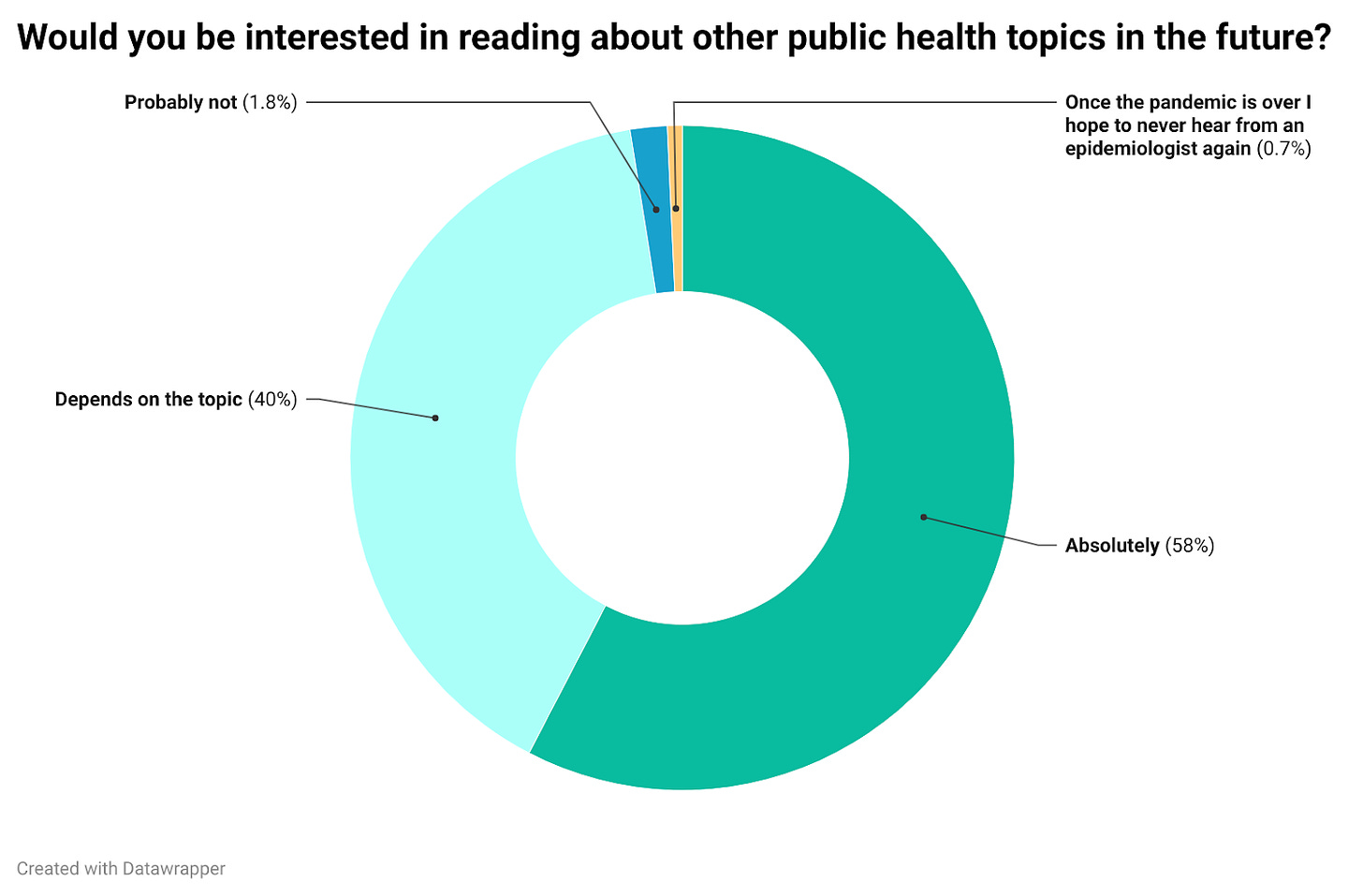
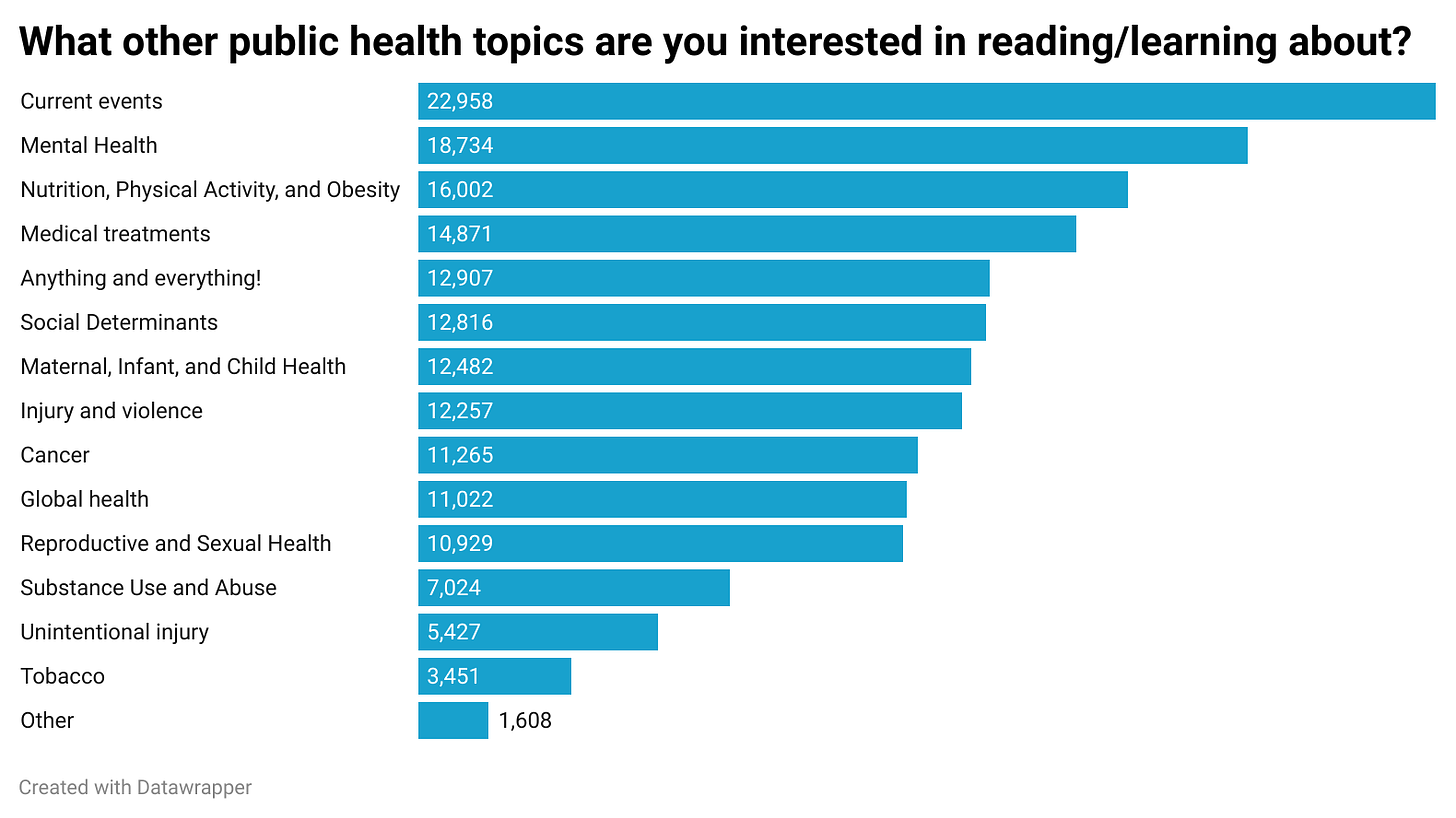

“Beyond the pandemic “-- as it morphs into a chronic situation where no information is easily available and the narrative is that it’s over, please continue to address COVID. We’re on our own and it’s very difficult-- especially for people at higher risk who still try to avoid infection.
Dr. J, I'd love to see you break down what you're doing now, and why.
I am still having my daughter mask at school--one of maybe a dozen children in her whole school. But CDC is still saying our state has "High Transmission" so it seems like the right thing to do. We're up to date on our vaccines, we've had Covid once, I don't want either of us to get Long Covid.
But we are in an extreme minority. I'd like to see how you're breaking down the numbers and your family's response.